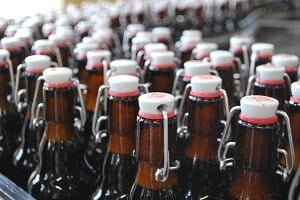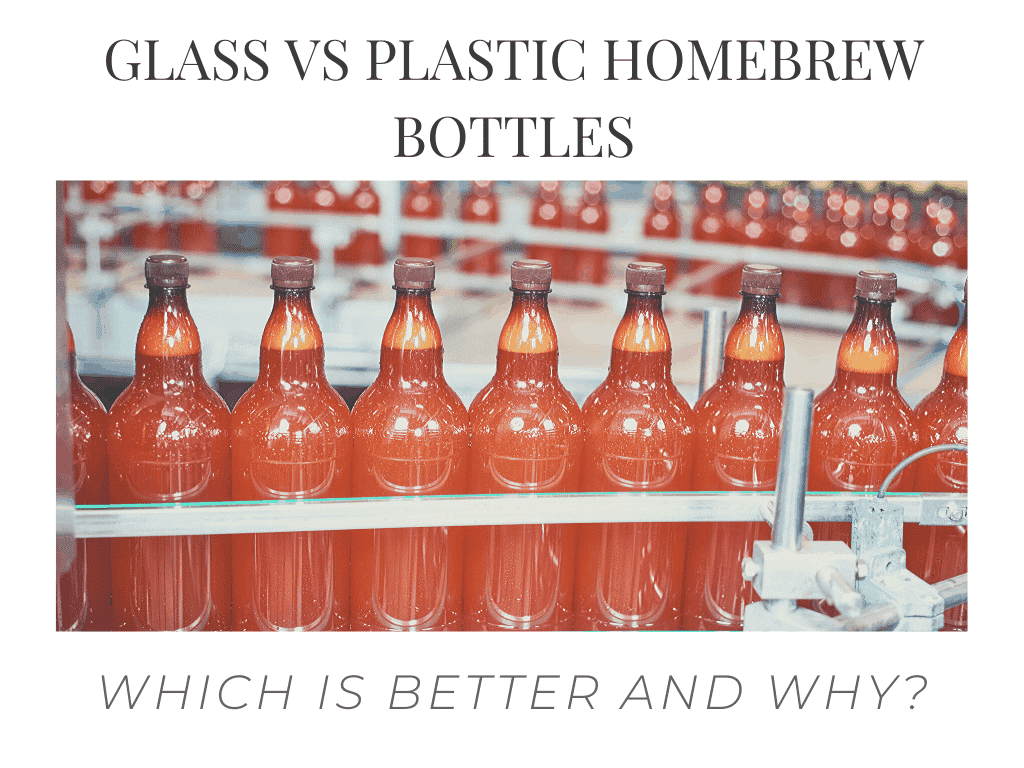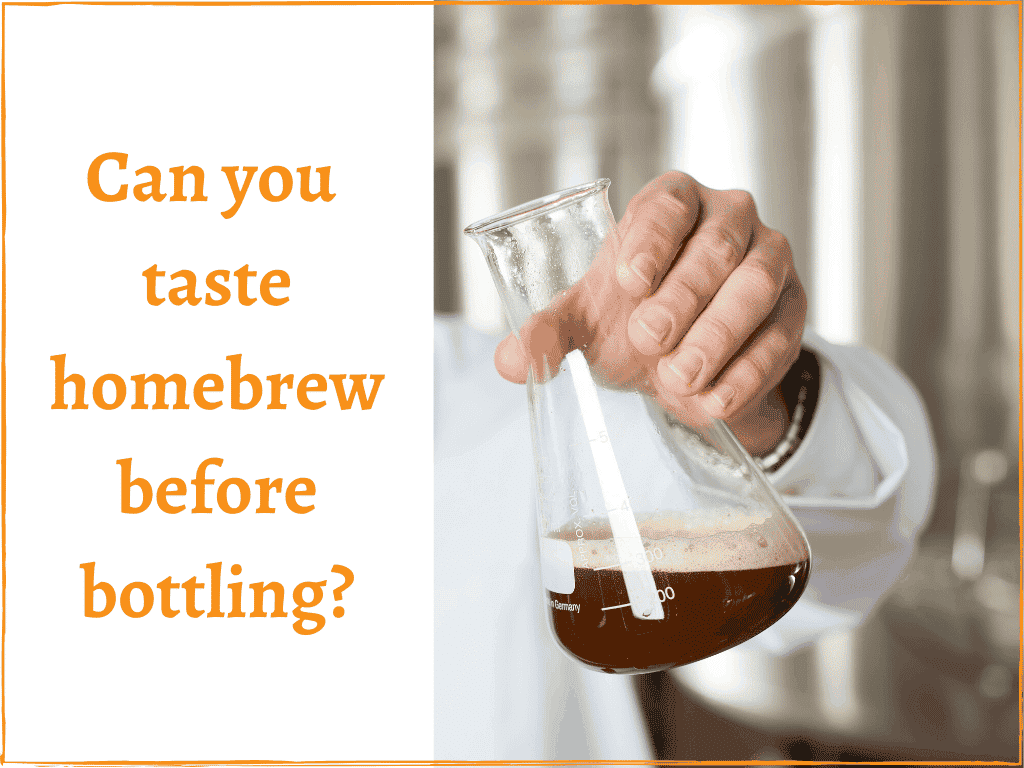Light beers are exceptionally refreshing on a hot day, but do they actually hydrate you?
Despite being primarily water, drinking beer does not hydrate you. Beer increases urine production and leads to an overall loss of fluids. Low or no alcohol beer will cause less fluid loss, especially when paired with a salty snack. Drinks such as fruit juice, tea, coffee, sodas, and, of course, water count toward your daily water intake.
There are a lot of factors that can affect your fluid intake. Keep reading to learn how beer can be used to hydrate you.
Topics We Cover
Does beer add to your water intake?
Beer is often blamed for having to relieve yourself frequently on a night out. However, since beer is nearly 95% water (depending on the style) it can be confusing whether it is hydrating or not.
Full-strength beer does not add to your water intake. Beer increases urine production which results in a net loss of water. Low and no alcohol beers are better than full strength but usually do not add to your daily water intake.
Due to the increased urine production and the high water content, beer is similar to taking one step forward and two back. Any beneficial water that beer would add to your water intake is soon excreted.
In a study that examined rehydration after light exercise, scientists found that subjects drinking full-strength beer (5% ABV) only retained 21% of the fluid. Subjects were given enough of each beverage to fully rehydrate if all fluid was retained.
This study also tested fluid retention of non-alcoholic beer, 2% ABV beer, water, and a sports drink. Each subject that drank these beverages retained more fluid. The low fluid retention of the full-strength beer was likely because it caused the subjects to urinate more.
Since drinking more full-strength beer would only make the situation worse, beer is not a great way to add to your water intake.
What counts as water intake?
Since drinking doesn’t always equal hydration, what exactly contributes to water intake?
Healthy water intake is achieved when your water intake offsets the water you lose. Your water intake should be a net positive or maintain a healthy level. This can come from water, milk, soda in moderation, and certain water-rich foods.
While water obviously counts as water intake, there are plenty of other great sources. Though many studies on the subject are limited, it is estimated that 22% of Americans’ water intake is from food.
Watermelon and other melons are nearly 90% water which makes them one of the best foods for water intake. Vegetables are another great source, especially lettuce and celery.
The most important aspect of water intake is that it takes you out of a hypohydrated state. When you are losing water, usually through sweat, faster than you can take it in, you are hypohydrated.
Due to this, almost any source of water is considered part of your water intake. If the source causes you to stay in a net negative state it is not sufficient.
Can you hydrate with beer?
With this understanding of hydration, we can better understand whether you can hydrate with beer.
You can hydrate with beer only if it is less than 4% ABV. Higher than this range and the net fluid intake will be negative due to increased urine production. Hydration with low-strength beer can be more effective when dehydrated as your body attempts to retain as much water as possible.
In fact, I have an entire article all about whether or not beer can quench your thirst!
That said, there is another caveat. One study did find that light beer could be a decent alternative to water for hydration. However, this light beer had added sodium to promote fluid retention.
Low alcohol beers won’t increase urine production as much as higher ABV beers. So in a pinch, you could hydrate with a light beer, but it won’t be as effective as the beer in the study unless boosted by sodium.
Sodium is essential for getting the water to the cells in your body that need it. So pick up a salty bar snack to help hydrate.
Be aware that even though the beer is lower in alcohol content, the impairing functions can be made worse by dehydration.
Is beer dehydration a myth?
At this point, it seems back and forth on whether a beer is dehydrating. The answer does depend on the beer in question.
Dehydration from beer is no myth. Beer with higher than 4% ABV is dehydrating. Beers lower in alcohol levels are less dehydrating when you have sufficient levels of electrolytes such as sodium.
The dehydrating feature of beer is well known to anyone familiar with drinking. As mentioned above, beer can result in a net loss of water intake.
If you do not keep up with drinking water in addition to beer, your hangover will be all the worse.
Is beer a diuretic?
The reason for the increase in urine production from beer is also well understood.
The alcohol in beer is a diuretic. Alcohol affects a hormone called vasopressin which in turn causes your kidneys to retain less water.
This aspect of beer is the main reason that beer is dehydrating. Vasopressin is called the anti-diuretic hormone.
However, the diuretic aspect of beer is only effective within a few hours of drinking. A study that compared the diuretic action of several alcohol sources noted that after 24 hours of drinking, the urine produced was similar between alcoholic and non-alcoholic drinks.
Which drinks count towards daily water intake?
At this point, you may be wondering which drinks are best for your daily fluid intake. There are a large variety of options available to you.
Some common drinks that count towards your daily water intake include:
- Water
- Fat-free milk
- Fruit juice
- Tea
- Coffee
- Soda (both diet and regular)
- Low ABV beer (with sodium)
Each of these options will hydrate you though there are some conditions. With the exception of water, these drinks will also provide additional calories. Soda in particular is one of the worst as it contains added sugars.
Additionally, any drink that has caffeine can be a very mild diuretic. Thankfully, the diuretic action in these beverages is not usually strong enough to result in a net loss of fluid intake. However, caffeine intake should be regulated due to its other effects.
Water will always be the best option when you are dehydrated. The other drinks are only made up of a certain percentage of water.





